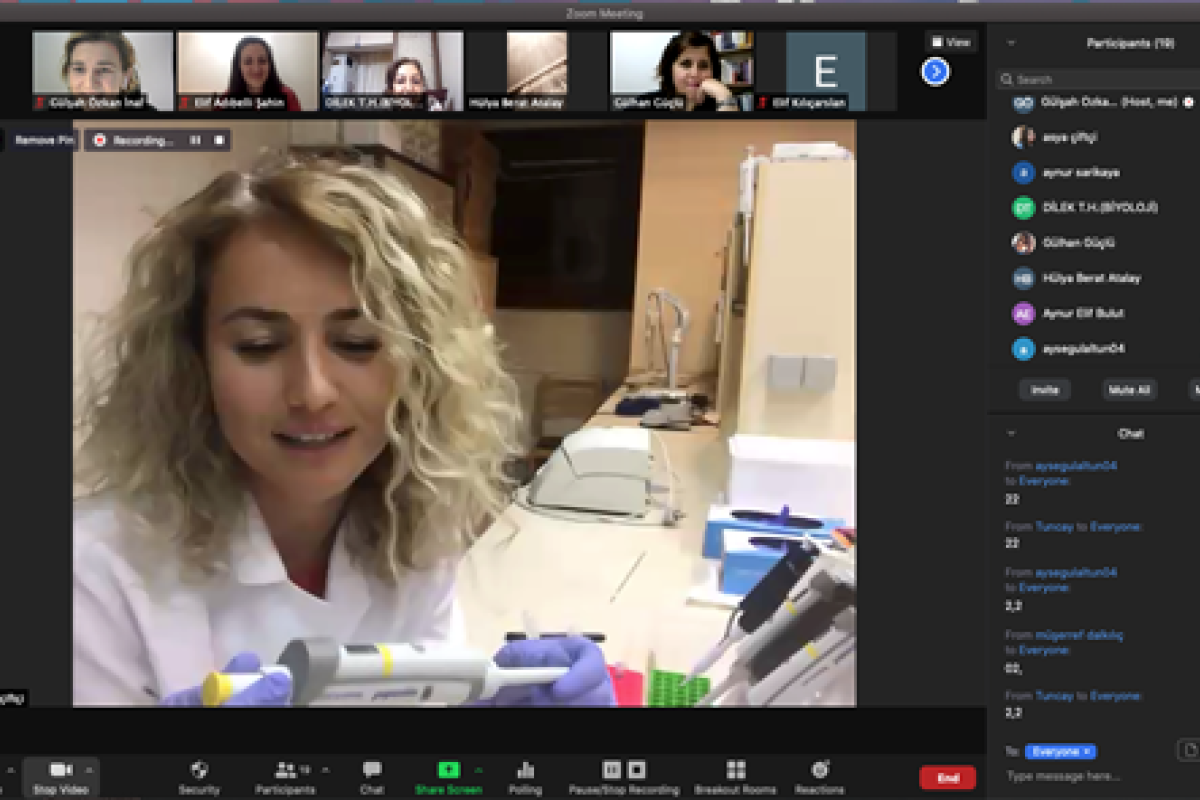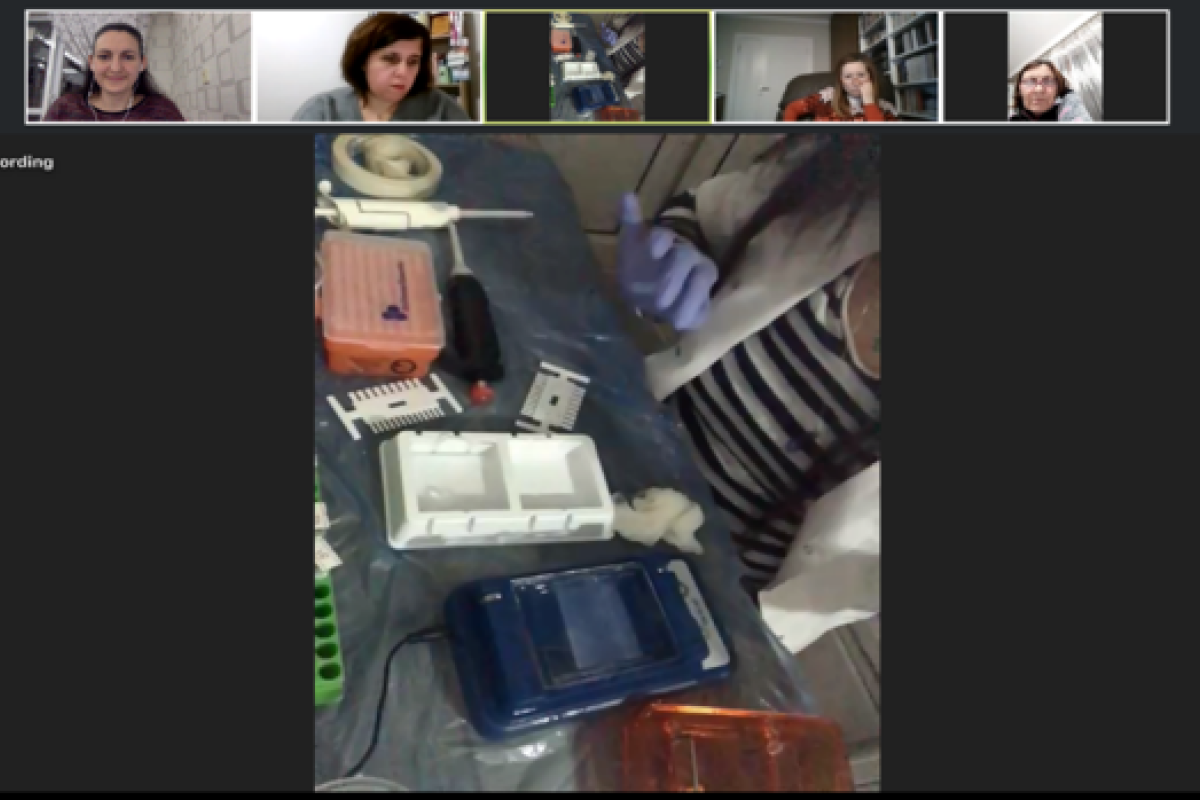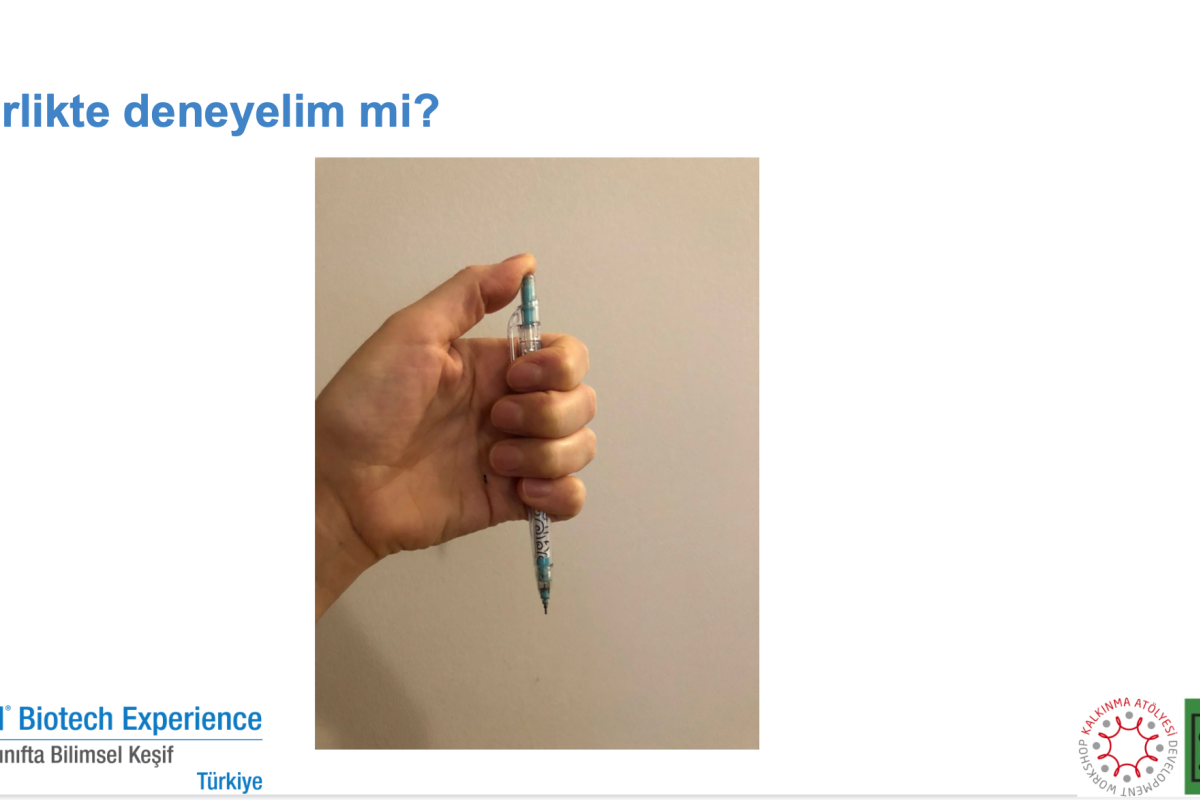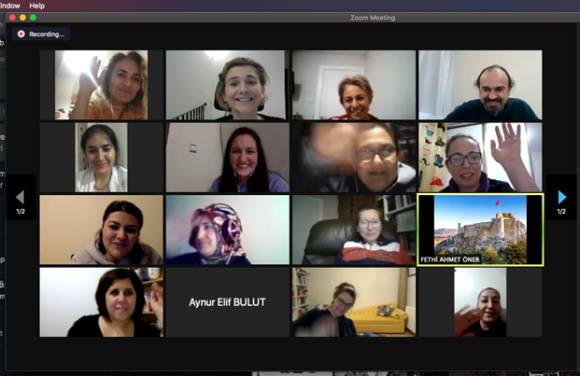- Contributed by the ABE Turkey program site staff
We recently (November–December 2020) completed our first official ABE professional development institute (PDI), and we wanted to share our experiences and what we learned. Our ABE teacher training focused on the following topics: DNA extraction, micropipetting, and gel electrophoresis.

For any training developed by the Development Workshop, we generally schedule a meeting or create a document through which we share the focus, the draft content, and the proposed agenda with ABE teachers to gather their first impressions about the training and their training preferences and needs in terms of content and timing. As a team, we believe that such information gathering and sharing of meeting details are important for teachers to feel valued and to voluntarily participate in any training.
Our first planning meeting included veteran teachers who were part of the ABE pilot implementation in 2016. They shared their backgrounds and what they have been doing since 2016. When asked why they were participating in the planning meeting, the teachers generally mentioned how our training feeds them in terms of various aspects (motivation to learn and teach, teaching methods, content knowledge, perspective on life) as well as how the project team works with them in person (e.g., answering their questions any time, attempting to fulfill their needs, valuing their thoughts and feelings, caring for their educational and even personal needs) and in general (e.g., providing necessary information on time, coming to the training well prepared and on time).

Based on the feedback from teachers via this meeting and an online survey sent out to other ABE teachers, we came up with the following agenda:
| Synchronous Sessions | Dates and Times | Descriptions |
|---|---|---|
| DNA extraction | 20 November 21:00–22:30 |
|
| Micropipetting | 26 November 21:00–22:30 |
|
| Gel electrophoresis | 3 December 21:00–22:30 |
|
Although we planned our synchronous sessions for about 90 minutes each, they took at least 2 hours because participating teachers requested to further discuss the topics in detail regardless of their fatigue and the time of night. For instance, one teacher mentioned,
- I did DNA extraction with my students before, but I realized that I had not questioned the reasons for each step that much before.
Other teacher comments about the PDI:
- Leaving the sessions with questions makes me focus on collecting data after the training.
- Regardless of the topic, I always enjoy the discovery.
- I had thought that since DNA extraction is an experiment, it is normal to question a lot, but I realized that even when the topic is equipment, as in the micropipette, you can still question.
In addition to synchronous sessions, we conducted asynchronous sessions through WhatsApp in order to continue our discussions started in the PDI. For example, after the session of DNA extraction, the lab assistants performed DNA extraction with different alcohol temperatures and incubation times, which had been determined during the synchronous session, and took pictures of the results. Based on the pictures shared, teachers discussed the impacts of alcohol temperature and incubation time on DNA extraction through this WhatsApp group. In addition, the teachers viewed a short video in which lab assistants provided information and discussed the use of the Nanodrop spectrophotometer. This prompted a discussion about the importance of the purity of DNA in genetic experiments. We believe that providing professional support like this after the training sessions based on teachers’ needs is an important driving force for teacher retention. As part of the asynchronous session, we also sent the DNA extraction lesson plan to the teachers to use in their classrooms. Then we collected teacher feedback about the lesson plan, providing teachers with an opportunity to contribute to the development of these inquiry-based learning experiences for students. Lastly, we gave teachers an opportunity to reflect on what they had learned, an important step toward building their pedagogical content knowledge.
As a team, the ABE Turkey program site staff strongly believe that doing classroom observations and practicing what has been learned in a classroom are important elements of teachers' professional development. To this end, we requested that our teachers attend student trainings as observers and trainers in pairs. The synchronous student training sessions focused on the following topics:
Welcoming and laboratory safety precautions
- DNA extraction
- Micropipetting
- Gel electrophoresis
Before each student training session, the ABE Turkey team asked the trainer teachers to draft their sessions so we could determine what kinds of support they’d need. Then the ABE Turkey team came together with the teachers to answer their questions and share their suggestions regarding the sessions. After the student training, the teachers who took the role of trainer mentioned that it was really important for them to get feedback about their teaching in order to change their classroom practices and that the student training provided an opportunity for them to receive such practical feedback.

Finally, we believe that an important source of teacher motivation is seeing students’ positive learning outcomes. One of the teachers shared that her students’ participation in her lessons increased after the second session of this training.
A student’s comments on the training:
- I realized that the role of a teacher is not only giving homework to students. I understood what education means with this training. I understood that biology is not just written facts. It could be hands on. I realized that I could be a scientist in the future.
We’re proud that our ABE teachers and students gained confidence and learned new things in our recent PDIs.
